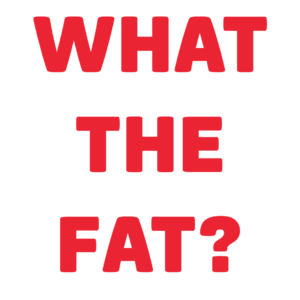 Recently, the WHO (World Health Organization) made a statement urging all countries to get rid of trans fats in the food supply, even banning them by law if necessary.1
Recently, the WHO (World Health Organization) made a statement urging all countries to get rid of trans fats in the food supply, even banning them by law if necessary.1
What Are Trans Fats?
Most of the trans fat we eat comes from artificial trans fats.2 Artificial trans fats are made through a process called hydrogenation where hydrogen atoms are added to vegetable oil to turn a liquid fat into a solid fat at room temperature.2 Trans-fat also occurs in small amounts naturally in animal products such as milk, butter, cheese and meat.2 A 3 oz. Rib-eye steak contains 1.5 grams of Trans-fat, Thin Mints contain 0.1 grams of trans-fat in 4 cookies, and a small frozen French vanilla coffee at Dunkin Donuts contains 2.5 grams.3 The average American eats 5.6 grams of trans fat per day.6
What about my health?
Trans fats have been proven to raise your “bad” cholesterol (LDL) and lower your “good” cholesterol (HDL).4 Eating trans fats increase your risk of developing heart disease, having a stroke and developing type 2 diabetes.4 Currently more than 40% of American adults have high cholesterol.5 Researchers at the Harvard School of Public Health estimate that trans fat causes 72,000 to 228,000 heart attacks, including roughly 50,000 fatal ones, per year.6
What is America doing about it?
In November 2013, the U.S. FDA made a preliminary determination that “partially hydrogenated oils” are no longer generally recognized as safe in human food.4 Later in 2015, the FDA started to take steps to remove ‘PHOs’ (partially hydrogenated oils) from the food supply.3 June 18, 2018 was the original date the FDA had declared as the date food manufacturers could no longer add PHOs to food, however, this deadline has now been extended to January 1, 2020.3
What other food effects my heart?
Although the WHO is currently focused on trans fats, other dietary habits also lead to increased risk for heart disease, stroke and type 2 diabetes. Excess intake of saturated fat, sugar and sodium can also lead to high cholesterol, high blood pressure, narrowing or hardening of arteries and decreased “good” cholesterol.4
What can I do to keep my heart healthy?7
- Eat a diet that focuses on fruit, vegetables and whole grains.7 Variety of color is key, try new recipes or different ways of preparing vegetables to expand your choices.
- Use naturally occurring, un-hydrogenated oils such as canola safflower, sunflower or olive oil.7 Limit or avoid stick margarines, coconut oils and butters high in saturated fat.
- Read labels and ingredient lists. Saturated fat is listed but trans fat may be harder to detect as foods with 0.5 grams or less are not required to list any trans fat and may claim “O grams Trans Fat”3. Ingredients listed with the word “hydrogenated”should be limited or avoided.
- Limit fried and highly processed foods such as doughnuts, cookies, crackers, muffins, pies and fried meats.7 Saturated fat should be limited to 5-7% of total daily calories.
- Stay active!7 Activity improves circulations, helps clear “bad” cholesterol and is great for stress.
- Stop smoking and/or avoid secondhand smoke. 7
If you or someone you know has questions, or would like to meet with a dietitian over this subject, you can call Northwest Health Services Family Medicine Associates location in St. Joseph! We have a full-time dietician on staff for our patients.
(816) 232-6818 – 2303 Village Drive – St. Joseph, MO



Aubrey Monical is the full-time dietitian at our Family Medicine Associates location.
Works Cited
- Fox, Maggie. “WHO urges all countries to ban trans-fats” https://www.nbcnews.com/health/health-news/who-urges-all-countries-ban-trans-fats-n873916 May 14, 2018. Accessed May 21, 2018.
- Food and Drug Administration. “Trans Fats” https://www.fda.gov/Food/ucm292278.htm Accessed May 21, 2018.
- Dunkin Donuts Nutrition Information. https://www.dunkindonuts.com/content/dam/dd/pdf/nutrition.pdf Accessed May 21, 2018.
- American Heart Association. “Trans Fat” https://healthyforgood.heart.org/eat-smart/articles/trans-fat Accessed May 21, 2018.
- American Heart Association. “What Are My risks for getting Heart Disease” http://www.heart.org/HEARTORG/HealthyLiving/What-Are-My-Risks-For-Getting-Heart-Disease-Infographic_UCM_443749_SubHomePage.jsp. Accessed May 21, 2018.
- Center For Science in the Public Interest. “Trans Fat”. https://cspinet.org/eating-healthy/foods-avoid/trans-fats. Accessed May 21, 2018.
- American Heart Association. “Diet and Lifestyle Recommendations” http://www.heart.org/HEARTORG/HealthyLiving/Diet-and-Lifestyle-Recommendations_UCM_305855_Article.jsp#.WwMjJ-4vzIU. Accessed May 21, 2018
